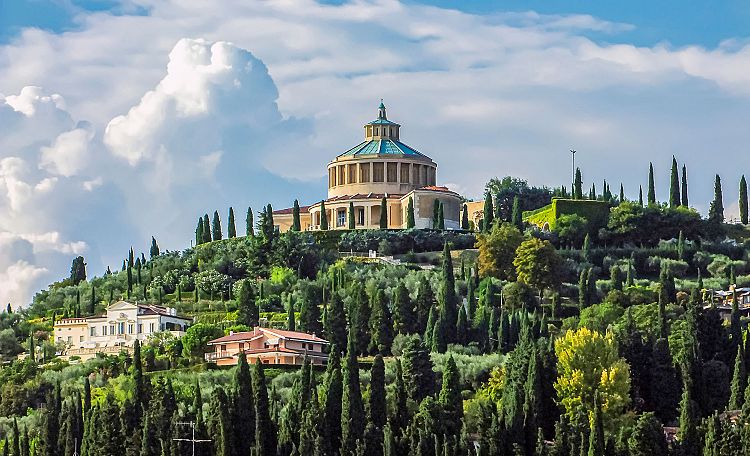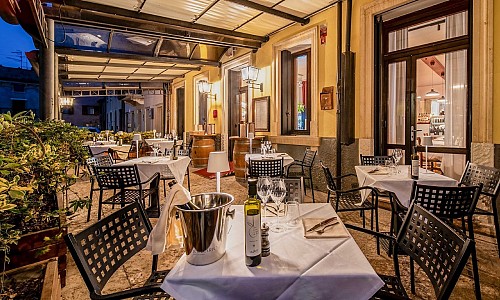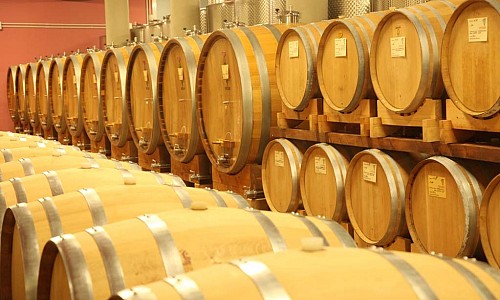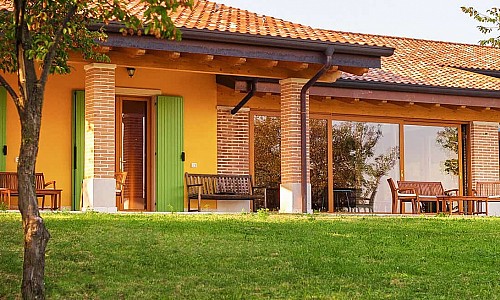Sanctuary of Our Lady of Lourdes
- Category What see Lake Garda and Verona
Historical notes, where it is located and curiosities about the Sanctuary of Our Lady of Lourdes in Verona.
Number of views: 6118Agriturismo - Where to stay overnight
- Historical background and location of the Shrine of Our Lady of Lourdes
- Interior highlights of the Shrine of Our Lady of Lourdes
Historical background and location of the Shrine of Our Lady of Lourdes
The Shrine of Our Lady of Lourdes rises on Verona’s San Leonardo Hill, one of the city’s most breathtaking natural balconies. From here you gaze over medieval rooftops, the winding Adige River and, on clear days, all the way to the Venetian Pre‑Alps. The hill takes its name from the ancient Monastery of Saint Leonard—already documented in the 12th century and dedicated to the patron saint of prisoners.
After the Napoleonic suppressions the monastic complex was sold, and in 1838 Archduke Maximilian of Austria had the defensive Fort San Leonardo erected in its place. During the Nazi‑Fascist occupation (1943‑45) the fort served as a political prison. The original shrine actually stood elsewhere in Verona, in the Stimate quarter near the Cittadella; when a bomb destroyed it in April 1945, a Marian statue dating from 1908 survived unscathed—a sign of heavenly protection in the eyes of the faithful.
In the 1950s the Stigmatine Fathers chose to transform the disused Austrian fort into a sanctuary of peace. Architect Paolo Rossi de’ Paoli designed the project, and in 1958 the present‑day Shrine of Our Lady of Lourdes was consecrated, turning a place once linked to war into a symbol of reconciliation and blessing.
Interior highlights of the Shrine of Our Lady of Lourdes
The circular church—its floor plan evoking a rosary crown—is topped by a broad copper‑clad dome. Inside, the Roman painter Aronne Del Vecchio covered the vault with a starry sky that converges on the figure of Mary, while sculptor Vittorio Colbertaldo created fifteen bronze bas‑reliefs illustrating the Mysteries of the Rosary in a bold modern style.
Just off the main nave lies the quiet Chapel of Adoration, the contemplative heart of the shrine; a finely carved white‑marble tabernacle houses the Blessed Sacrament. Beneath the chapel, sections of the 19th‑century fort have been preserved as a small museum recounting the hill’s dual military and devotional history.
A local legend tells of a mother of three who suffered severe sciatic pain. Each day she drew water from the shrine’s fountain and prayed to the Immaculate. One morning her condition worsened; believing death near, she asked the bishop to bless her during Mass. As she lay praying, her pain vanished and she rose completely healed, enhancing the fountain’s reputation for miracles.
Over the years the interior has undergone several restorations. Visitors can now admire 1960s stained‑glass windows, the historic 1908 statue that survived the bombing, and numerous ex‑votos left in gratitude. Outside, a panoramic walkway dotted with terraces offers unmatched views of Verona’s amphitheatre of hills.






















